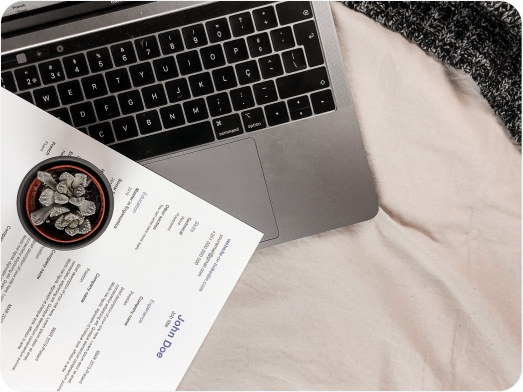
CV Tips
Your CV represents you, and it is the best way that you can present yourself to prospective employers and show them how suitable and competent you are. CV is vital and even if you are the ideal candidate for the role, if your CV does not reflect that and it is not up to scratch, you will be overlooked.
Getting the CV right is paramount
When sending your CV, you should include a covering letter stating which role you are applying for and why you should be considered for that role, unless told not to. It is important to keep in mind not to repeat what is already on the CV, rather show the passion and enthusiasm you have for the role and how you will bring a difference to the role/team or organisation.
If you are sending a letter inquiring for roles, then write a short passage stating what kind of role or position you’re seeking and interested in.
CV structure:
When structuring your CV it is important that the following should be included:
- Your name, address, email address, telephone (daytime and evening time).
- Educational background i.e. qualifications (GCSE, A Levels, Degrees B.A Hons, MA).
- Vocational qualifications (HGV driving license, Microsoft Certified Engineer, CISCO).
- Employment History (starting with the most recent and working backwards).
- Voluntary work or other achievements (charity work, community work).
- Interests & Hobbies).
- 2 References.
It is important that you arrange your CV into a cohesive structure and do not expect to use the same CV for every job application. It is imperative that you modify and refine the CV based on the type of job you’re are applying for.
Lastly, be succinct and ensure that you do not have more than 2 A4 pages. This is a golden rule for a CV. The idea is not to make you leave crucial information out, rather to ensure you keep information to the point and brief.
Before sending:
- Ensure that you have done a spelling check and it is typed. It is advisable not to send a CV handwritten.
- Ensure it is presentable and easy to read and professional-looking.
- Do not use gimmicks, elaborate typefaces and fancy designs.
- Print the CV on clean white paper and avoid photocopying the CV, instead print copies all the time.
- Always post or e-mail the CV, it is a confidential document which contains personal details.
Note: do not be despondent if the first few CVs that you send out do not get any response or get you far – an important attribute needed for getting a job is being persistent and showing resilience, and remember good things come to those who wait…Best wishes.

